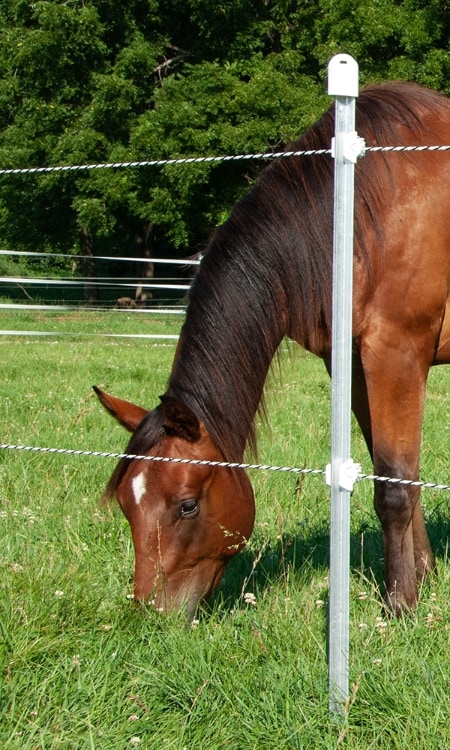Electric Fence Insulators

Why is Premier 1 “The Source” for high-quality electric fence insulators at low prices?
We seek out manufacturers and brands we trust, with a proven track record of producing insulators that perform. When they don’t meet our standards, we work directly with manufacturers to create insulators specifically for us. This gives us full control over both material and design.
By buying direct and selling direct, we’re able to offer better insulators at a better value—a big win for our customers.
Why high quality is so important…
Electric fence insulators must withstand years of exposure to:
- Millions of high-voltage pulses
- UV exposure and weather extremes
- Installation errors and wire strain from wind, ice, snow, falling branches and animal impact (e.g. deer, elk, antelope)
Too many insulators are designed for packaging appeal—not performance. They often slip, crack or fail under pressure. Premier’s are designed to hold up in real-world use.
Types of insulators:
- Line Post — For guiding conductors along straight runs
- Corners/Ends — Built to anchor lines under moderate tension
- Offsets — To keep animals off of existing fences
- FiberRod Clips — Secure conductors to fiberglass rods
- Specialty Insulators — For gates, unique post types or temporary fences
- MaxiShock and High-Tensile — For heavy-duty, high-tension systems
Choosing the right insulator…
Match the insulator to your setup:
- Post type — Different insulators fit wood, T-posts, fiberglass, or steel posts.
- Conductor type — Rope, tape, wire, or twine? The conductor should fit snugly yet still move freely while withstanding pressure or strain.
- Function — End, corner, or line post? Use purpose-built insulators (e.g. rotating brackets for corners).
- Color/visibility — White is more visible (and therefore safer); black is, to some, visually appealing because it’s harder to see. However, be aware that low-cost black insulators often use recycled plastic.
- Animal safety — A priority for horses. Avoid insulators with sharp edges.
- Ease of installation — Some wood post insulators work with power drivers; others require nails.
- UV resistance — Black virgin plastic performs best, followed by white. Cheap black insulators with reground plastic will degrade quickly.
Steel posts in electric fencing: Use with caution!
Steel posts pose a greater risk than wood posts in electric fencing. If a live conductor slips out and touches the steel, it causes a dead short which drastically lowers the fence voltage and allows animals to push through without feeling pain.
To prevent this:
- Use quality insulators that securely hold the conductor away from the steel post.
- Take extra care when attaching insulators to steel posts. A loose or misaligned insulator can compromise the whole system.

